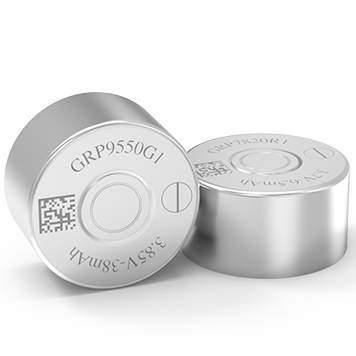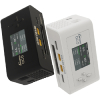What Are AI Glasses?
AI glasses are revolutionizing the world of wearable technology by merging artificial intelligence with traditional eyewear, creating smart devices that offer enhanced functionality beyond just augmented reality. Equipped with sensors, cameras, microphones, and displays, AI glasses offer a seamless, hands-free experience that interacts with the user’s surroundings, making them ideal for everything from object recognition and voice-controlled assistance to real-time translations and health monitoring. With a growing range of applications, AI glasses are poised to redefine how we interact with the world, offering a glimpse into the future of personalized, intelligent wearable tech.
What Are AI Glasses?
AI glasses are wearable smart devices that integrate artificial intelligence (AI) capabilities with traditional eyewear. Unlike traditional smart glasses that primarily focus on augmented reality (AR) features, AI glasses leverage advanced AI algorithms to process real-time information, provide intelligent assistance, and enhance various aspects of our daily lives. Unlike conventional glasses, AI glasses are equipped with advanced sensors, cameras, microphones, and displays to interact seamlessly with their surroundings and users.
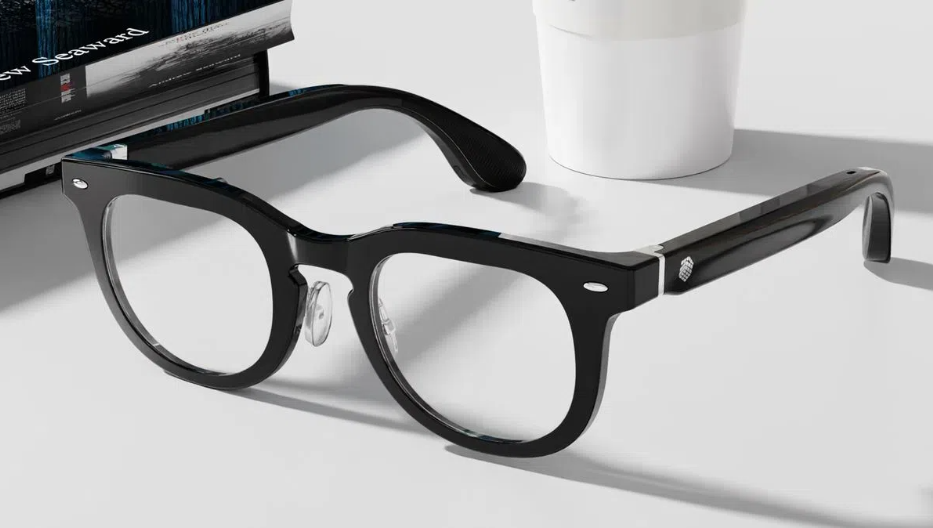
How Do AI Glasses Work?
AI glasses operate by combining hardware and software components to deliver intelligent functionality. The typical working process includes:
●Data Capture: Sensors, cameras, and microphones embedded in the glasses capture visual, auditory, and environmental data.
●Data Processing: The captured data is processed locally on the device or transmitted to cloud-based systems. AI algorithms analyze the data to extract meaningful information, such as recognizing objects, translating text, or detecting user commands.
●Output Delivery: Processed information is displayed on integrated screens or projected directly onto the lenses. Users can also receive audio feedback via built-in speakers or bone-conduction technology.
●User Interaction: AI glasses often include touch-sensitive areas, voice command functionality, or gesture recognition for intuitive user interactions.
What Are the Main Functions of AI Glasses?
AI glasses offer a range of features tailored to various applications, including:
●Real-Time Translation: Translate spoken or written language into the user’s preferred language, displayed on the lenses.
●Object Recognition: Many models include features for recognizing faces and objects, enhancing social interactions and situational awareness.
●Voice Assistant Integration: AI glasses often come with built-in voice assistants such as Siri, Alexa, or Google Assistant. Users can issue commands like checking the weather, setting reminders, making calls, or controlling smart home devices, all through voice, without needing to pull out a phone.
●Photography and Video Recording: Many AI glasses come with built-in cameras that allow users to take photos and record videos directly from their glasses. This hands-free capture is ideal for content creators, journalists, and adventurers, offering a discreet and convenient way to document moments without needing additional devices.
●Music Listening: AI glasses can double as music players, with embedded speakers or bone conduction technology allowing users to listen to music or podcasts while keeping their ears open to the surroundings. They may also integrate with music streaming apps, offering seamless audio experiences on the go.
●Audio Recording: With built-in microphones, AI glasses can record audio for meetings, lectures, or casual conversations. This functionality can be used for transcription purposes or to capture important moments, which can later be reviewed or shared.
●Enhanced Accessibility: Assisting individuals with visual impairments by providing audio descriptions of their surroundings, identifying objects, and navigating environments.
●Navigation Assistance: Provide turn-by-turn directions or AR overlays for real-world navigation.
●Health Monitoring: Track biometric data such as heart rate and body temperature.
●Communication: Allow hands-free calls, notifications, and text messaging.
●Accessibility Support: Offer assistance for visually or hearing-impaired users, such as text-to-speech or sign language interpretation.
AI Glasses vs. AR Glasses: What's the Difference?
While AI glasses and augmented reality (AR) glasses may seem similar, there are distinct differences between the two in terms of functionality and application:
●Core Technology: AR glasses primarily focus on overlaying digital information onto the real world, creating an immersive mixed-reality experience. They use advanced computer vision, depth sensors, and spatial mapping to interact with the physical world. AI glasses, on the other hand, emphasize integrating artificial intelligence for intelligent decision-making and interaction with the user.
●Purpose: AR glasses are primarily used for immersive experiences such as gaming, navigation, or enterprise applications like training and design. AI glasses, while they may also support AR functionality, are more focused on providing assistance and performing intelligent tasks such as recognizing objects, understanding speech, and offering context-aware services.
●Interactivity: AI glasses are designed to respond to the wearer’s needs through AI-driven interactions. In contrast, AR glasses often focus on enhancing the visual experience with dynamic 3D overlays and more complex spatial interactions.
The Most Popular AI Glasses at CES 2025
At CES 2025, several innovative AI glasses captured the attention of tech enthusiasts and industry experts alike. Among them, the Halliday AI Glasses, Looktech AI Glasses, and Loomos AI Glasses stood out for their unique features and capabilities.
Halliday AI Glasses
The Halliday AI Glasses are designed with a focus on proactive assistance and user comfort. Weighing just 35 grams, these glasses feature an innovative "DigiWindow" display that is integrated into the frame, providing a discreet way to access information without obstructing the user's view. This near-eye display is touted as one of the smallest in the market, allowing users to receive notifications, translations, and meeting summaries seamlessly. Key features include:
●Augmented Reality & Real-Time Information Display: With high-definition displays, the Halliday AI Glasses project AR content directly onto the lenses, offering a seamless integration between the digital and physical worlds.
Proactive AI Assistant: The integrated AI can anticipate user needs during meetings by summarizing discussions and generating notes.
●Real-time Translation: Supports up to 40 languages for instant communication assistance.
●Control Mechanisms: Users can interact with the glasses via voice commands or a control ring worn on the finger, enhancing usability.
●Privacy Focus: The display is designed to be invisible to bystanders, ensuring that sensitive information remains private.
These glasses are expected to retail between $399 and $499, with pre-orders opening soon after CES 2025.
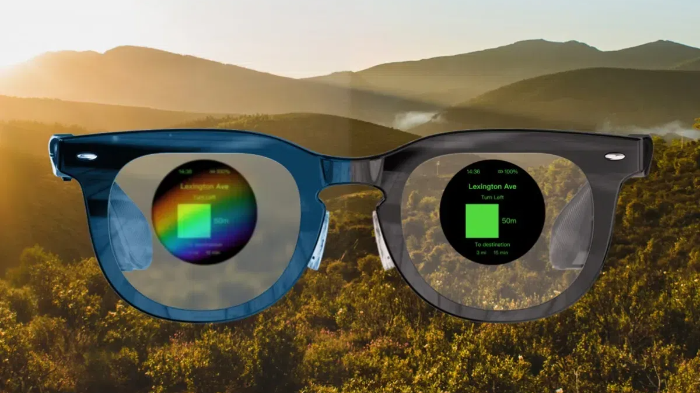
Looktech AI Glasses
The Looktech AI Glasses bring a stylish yet functional approach to smart eyewear. Priced at an attractive $209 during their Kickstarter campaign, these glasses are equipped with powerful AI capabilities powered by advanced models like GPT-4o and Claude. They serve as wearable audio/visual assistants that enhance daily tasks. Notable features include:
●Object Recognition and Translation: Capable of identifying objects and translating text in real time, making them ideal for travelers.
●Voice-Controlled Assistance: Activated by saying "Hey Memo," this feature allows users to set reminders, answer questions, and summarize meetings effortlessly.
●High-Quality Camera: A 13MP camera enables users to capture high-resolution photos and stabilized videos in 2K quality.
●Long Battery Life: With up to 14 hours of battery life, these glasses are designed for all-day use, making them practical for various activities.
The Looktech AI Glasses aim to reduce screen time on smartphones while providing essential functions right in front of the user.
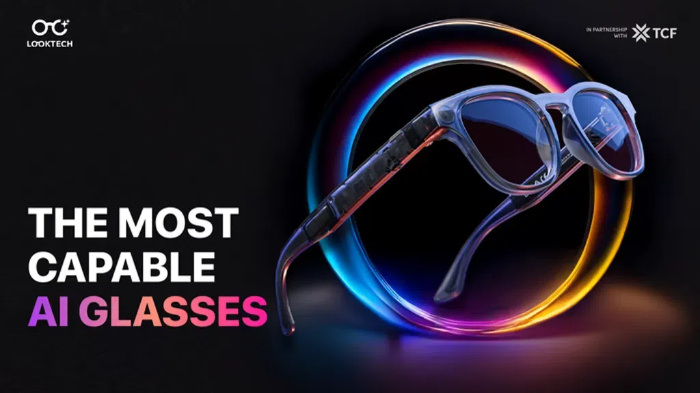
Loomos AI Glasses
The Loomos AI Glasses, introduced under SHARGE's new sub-brand, offer a versatile design that integrates photography, audio capabilities, and AI assistance. These glasses are particularly appealing for those who value hands-free operation in their daily lives. Key specifications include:
●16MP Camera: Capable of capturing stunning 4K photos and recording 1080P videos for up to five minutes.
●Hi-Fi Audio Integration: Equipped with open-ear speakers that deliver immersive sound while allowing users to remain aware of their surroundings.
●AI-Powered Voice Assistant: The integration of GPT-4o facilitates on-the-go access to information and assistance tailored to user preferences.
●Customizable Options: Available in various colors and sizes with options for prescription lenses, ensuring a personalized fit for users.
These glasses not only cater to photography enthusiasts but also provide practical solutions for everyday challenges through advanced technology.
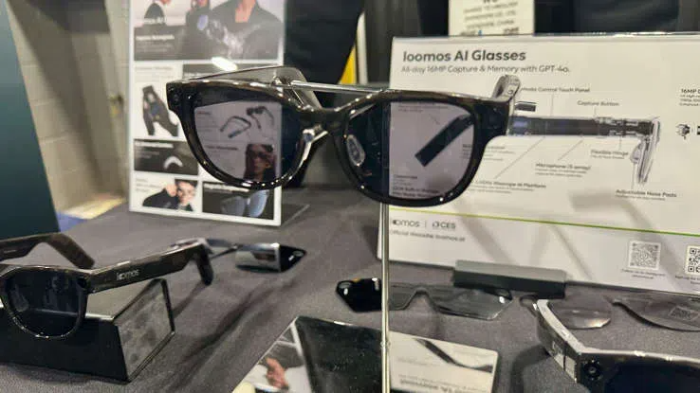
Conclusion
AI glasses represent the next step in wearable technology, providing users with smarter, more intuitive ways to interact with the world around them. By integrating artificial intelligence into everyday eyewear, these devices can perform tasks ranging from voice assistance and navigation to health monitoring and real-time translations. As AI technology continues to advance and the demand for intelligent and personalized experiences grows, we can expect to see even more innovative and impactful AI-powered eyewear solutions in the years to come. Grepow, as a global leading LiPo battery manufacturer, offers highly customizable batteries in various shapes, with thicknesses as thin as 0.5mm and widths as narrow as 4.1mm, making them ideal for meeting the specific requirements of AI glasses. These ultra-thin and compact AI glasses batteries are designed to fit the form factors of AI glasses while ensuring optimal performance, power efficiency, and long-lasting energy supply for the video shooting, photo taking, music listening, and audio recording functions commonly featured in such devices. If you have any questions or needs, please feel free to contact us at info@grepow.com.
Related Articles
-

Join Grepow at the 2025 Global Sources Hong Kong Show
2025-04-08 -

Exploring AI Smart Rings at CES 2025: A Deep Dive into Battery Technology
2025-01-23 -
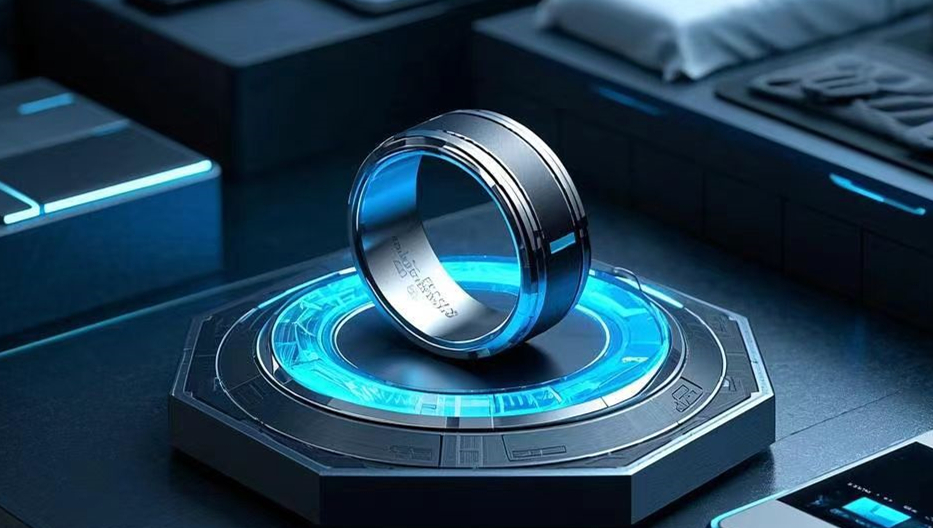
AI-Driven Smart Rings: Innovations and Trends at CES 2025
2025-01-20




